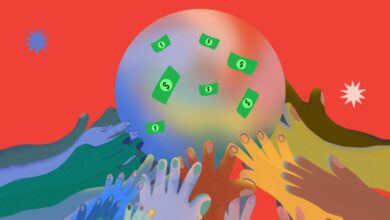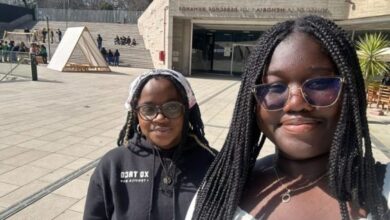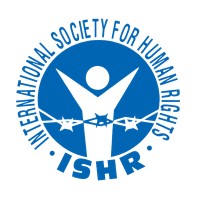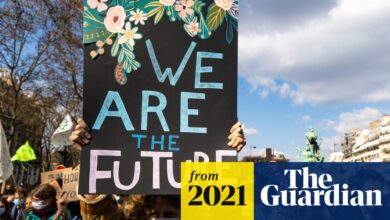Kurdish Activist Yasemin Acar on Gaza, flotillas, and freedom

Yasemin Acar, a Kurdish activist from Turkey raised in Germany, has been committed to human rights and social justice since her youth.
Her lifelong activism has placed her at the heart of international solidarity movements, from challenging Israel’s blockade on Gaza to confronting racism and silencing in Europe.
She came to wider attention after joining the Madleen Flotilla, a civilian mission that directly challenged Israel’s illegal siege on Gaza, marking her as another important voice of collective liberation.
She is part of the Global Sumud Flotilla coalition’s steering committee — the largest civilian maritime mission carrying aid to the Israeli-blockaded Gaza Strip, bringing together more than 50 ships and delegations from at least 44 countries.
The Global Sumud Flotilla departed Barcelona on Monday evening — the third aid flotilla of its kind in recent months to attempt to break the Israeli siege on Gaza — with Swedish climate activist Greta Thunberg, Brazilian activist Thiago Avila, former Mayor of Barcelona Ada Colau Ballano, Irish actor Liam Cunningham and Spanish actor Eduard Fernandez on board.
Yasemin Acar speaks with The New Arab to discuss the flotilla, the role of international activism, and the meaning of global solidarity with the Palestinian cause.
The New Arab: You’ve often stressed the importance of centring Palestinians in solidarity actions. How do you think international movements can avoid the narrative of “saving” Palestinians and instead highlight their voices and their resistance?
Yasemin Acar: I’m not Palestinian, but I can understand Palestinians very well. I know what oppression means – from the perspective of a Kurdish person, but also because I was raised in a Western country as a non-Western person.
As activists, we must always recognise that the solidarity movement follows the lead of Palestinians. We have to ask Palestinians what we can do to support their cause. Palestinians in the West Bank, Gaza, and ’48 cannot speak freely, so we have the duty to amplify their voices. To do so respectfully and appropriately, we must speak with them. Nobody can free Palestine; Palestinians will liberate themselves.
Well-known activists are often given space and stages to speak about Palestine, and in those situations, we must always ask: “Have you given this space to Palestinians?”
Media coverage often focuses on activists rather than Gaza itself, so what strategies can shift the spotlight back onto Palestinians and their cause?
I’m just a tool for this. Recently, a Palestinian said to me, “Imagine, we are the finger pointing at the moon. Don’t look at the finger, look at the moon.” Our visibility is a tool to shed light on the Palestinian cause.
The Handala Flotilla did not receive the same resonance as the Madleen. Why do you think that happened, and what does it reveal about global perceptions of solidarity and media coverage?
Many people were unaware of the Freedom Flotilla before the Madleen. After that, many more people became aware of the cause because they saw ordinary civilians boarding a boat, which helped reduce the sense of powerlessness.
Another reason is the short attention span of people today, shaped by social media and fast-paced news. They don’t stay focused on the same issue for long.
And finally, it’s about the need to escalate. Just like in the streets, when only a few people protest, the police repress them, so you need many more to make it harder to repress. The same applies here; that’s the reason behind the Global Sumud Flotilla.
How has your experience as a brown woman from Germany shaped both your activism and the way you are treated in this context?
Before meeting you, I was working on an email to a Peace Conference in Hamburg that will take place in November. They had invited me to be part of it, to speak about activism, injustices, and the way Germany deals with demonstrations. The invitation came because I am a critical voice in Germany and have experienced repression – but also because I am a woman of colour.
I believe that strong women of colour dismantle the narrative of how the West portrays us. Brown and Black women are depicted as victims in need of saving by Westerners. But when they see that we do not need saving, that we are strong and respected within our communities, it exposes their lies. Their narrative is racist and specifically anti-Muslim.
And yet, my participation was cancelled after the Zionist lobby in Germany put pressure on the organisers, insisting that I could not be invited.
The professor who reached out to me had wanted me to speak on themes such as the struggle against the far right, against racism and colonialism, for a world of solidarity and justice, and for a free Palestine. The fact that they decided to cancel someone who embodies these struggles makes it clear why such injustices continue to exist: silencing is precisely what allows these systems of oppression to persist.
I’ve been cancelled from universities many times. The director of the Technical University of Berlin, which actively collaborates with Israel in designing weapons, banned me from entering the campus — the police met me.
This is happening to Palestinians too; Ghassan Abu Sittah was banned from entering Germany while his people are being massacred.
This isn’t just Germany — it’s the whole Western world. It’s racism, it’s Islamophobia, and it’s the reason why 77 years of ethnic cleansing have been possible.
Do you think racialised activists faced harsher treatment than white activists during the Handala and Madleen flotillas, and how do you work to ensure no one is left at a disadvantage?
We always try to protect everyone, especially Palestinians. But there’s nothing concrete we can do. They are racists, and they will always mistreat people of colour. Zionist ideology is based on racism and white supremacy, just like Nazi ideology.
When the Zionist authorities imprisoned me, I asked for something to read. The guard asked me, “Do you want the Bible?” as a provocation. He believed that Muslims hate Christians. I said, “Yes, give me the Bible.”
Since they are racists, they assume we are racists too, and they try to turn us against each other. We always try to protect people, but the problem lies in the system of racism and oppression at its root.
How do you personally navigate the tension between being visible as an activist and ensuring that Palestine remains at the centre of the narrative?
I expose what Germany is doing, and it must be held accountable as the third-largest arms exporter, enabling the genocide. The same things they did to the Jews are now being done to the Palestinians, Arabs and Muslims.
My strategy is to demonstrate that we are struggling in the country. People then start asking me questions, and then I talk about police violence and repression, and from there I move on to Palestine.
I draw attention to what is happening in Germany to speak about Palestine and make it clear that everything is happening because of our support for the Palestinian cause, and nothing else.
We have to constantly keep Palestine at the centre of everything we do and say.
The Global Sumud Flotilla is often described as a single event, but you refer to it as a global movement. How does it extend beyond boats to connect activists and solidarity efforts worldwide?
The Global Sumud Flotilla is part of a much larger movement. Flotillas are just one element — we are building a global movement that connects movements from around the world, especially those from the Global South. More initiatives are happening alongside it.
The GSF involves participants from 44 countries, with over 30,000 people applying to join from an even greater number of countries. It’s really impressive.
Dozens of boats are participating in a purely non-violent mission, with non-violent training provided to everyone who wishes to sail. Even the Pope! If he wants to join, he must participate in this training.
We are carrying humanitarian aid and aim to break the illegal siege, opening a humanitarian sea corridor. The flotillas depart from four main ports – Spain, Italy, Greece, and Tunisia – and we will meet in international waters.
Dalia Ismail is a Palestinian-Italian independent analyst and journalist
Follow her on X: @Dalia_dalla_pal




